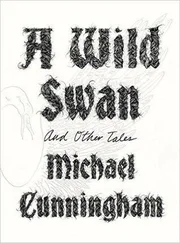George MacDonald - Stephen Archer, and Other Tales
Здесь есть возможность читать онлайн «George MacDonald - Stephen Archer, and Other Tales» — ознакомительный отрывок электронной книги совершенно бесплатно, а после прочтения отрывка купить полную версию. В некоторых случаях можно слушать аудио, скачать через торрент в формате fb2 и присутствует краткое содержание. Жанр: foreign_prose, foreign_religion, foreign_antique, на английском языке. Описание произведения, (предисловие) а так же отзывы посетителей доступны на портале библиотеки ЛибКат.
- Название:Stephen Archer, and Other Tales
- Автор:
- Жанр:
- Год:неизвестен
- ISBN:нет данных
- Рейтинг книги:4 / 5. Голосов: 1
-
Избранное:Добавить в избранное
- Отзывы:
-
Ваша оценка:
- 80
- 1
- 2
- 3
- 4
- 5
Stephen Archer, and Other Tales: краткое содержание, описание и аннотация
Предлагаем к чтению аннотацию, описание, краткое содержание или предисловие (зависит от того, что написал сам автор книги «Stephen Archer, and Other Tales»). Если вы не нашли необходимую информацию о книге — напишите в комментариях, мы постараемся отыскать её.
Stephen Archer, and Other Tales — читать онлайн ознакомительный отрывок
Ниже представлен текст книги, разбитый по страницам. Система сохранения места последней прочитанной страницы, позволяет с удобством читать онлайн бесплатно книгу «Stephen Archer, and Other Tales», без необходимости каждый раз заново искать на чём Вы остановились. Поставьте закладку, и сможете в любой момент перейти на страницу, на которой закончили чтение.
Интервал:
Закладка:
It cannot but seem strange that such a man should have been so careless of the child he had. But from the first she had painfully reminded him of her mother, with whom in truth he had never quarrelled, but with whom he had not found life the less irksome on that account. Add to this that he had been growing fonder of business,—a fact which indicated, in a man of his endowment and development, an inclination downwards of the plane of his life. It was some time since he had given up reading poetry. History had almost followed: he now read little except politics, travels, and popular expositions of scientific progress.
That year Christmas Eve fell upon a Monday. The day before, Letty not feeling very well, her husband thought it better not to leave her, and gave up going to church. Phosy was utterly forgotten, but she dressed herself, and at the usual hour appeared with her prayer-book in her hand ready for church. When her father told her that he was not going, she looked so blank that he took pity upon her, and accompanied her to the church-door, promising to meet her as she came out. Phosy sighed from relief as she entered, for she had a vague idea that by going to church to pray for it she might move the Lord to chasten her. At least he would see her there, and might think of it. She had never had such an attention from her father before, never such dignity conferred upon her as to be allowed to appear in church alone, sitting in the pew by herself like a grown damsel. But I doubt if there was any pride in her stately step, or any vanity in the smile—no, not smile, but illuminated mist, the vapour of smiles, which haunted her sweet little solemn church-window of a face, as she walked up the aisle.
The preacher was one of whom she had never heard her father speak slighting word, in whom her unbounded trust had never been shaken. Also he was one who believed with his whole soul in the things that make Christmas precious. To him the birth of the wonderful baby hinted at hundreds of strange things in the economy of the planet. That a man could so thoroughly persuade himself that, he believed the old fable, was matter of marvel to some of his friends who held blind Nature the eternal mother, and Night the everlasting grandmother of all things. But the child Phosy, in her dreams or out of them, in church or nursery, with her book or her doll, was never out of the region of wonders, and would have believed, or tried to believe, anything that did not involve a moral impossibility.
What the preacher said I need not even partially repeat; it is enough to mention a certain metamorphosed deposit from the stream of his eloquence carried home in her mind by Phosy: from some of his sayings about the birth of Jesus into the world, into the family, into the individual human bosom, she had got it into her head that Christmas Day was not a birthday like that she had herself last year, but that, in some wonderful way, to her requiring no explanation, the baby Jesus was born every Christmas Day afresh. What became of him afterwards she did not know, and indeed she had never yet thought to ask how it was that he could come to every house in London as well as No. 1, Wimborne Square. Little of a home as another might think it, that house was yet to her the centre of all houses, and the wonder had not yet widened rippling beyond it: into that spot of the pool the eternal gift would fall.
Her father forgot the time over his book, but so entranced was her heart with the expectation of the promised visit, now so near—the day after to-morrow—that, if she did not altogether forget to look for him as she stepped down the stair from the church door to the street, his absence caused her no uneasiness; and when, just as she reached it, he opened the house-door in tardy haste to redeem his promise, she looked up at him with a solemn, smileless repose, born of spiritual tension and speechless anticipation, upon her face, and walking past him without change in the rhythm of her motion, marched stately up the stairs to the nursery. I believe the centre of her hope was that when the baby came she would beg him on her knees to ask the Lord to chasten her.
When dessert was over, her mother on the sofa in the drawing-room, and her father in an easy-chair, with a bottle of his favourite wine by his side, she crept out of the room and away again to the nursery. There she reached up to her little bookshelf, and, full of the sermon as spongy mists are full of the sunlight, took thence a volume of stories from the German, the re-reading of one of which, narrating the visit of the Christ-child, laden with gifts, to a certain household, and what he gave to each and all therein, she had, although sorely tempted, saved up until now, and sat down with it by the fire, the only light she had. When the housemaid, suddenly remembering she must put her to bed, and at the same time discovering it was a whole hour past her usual time, hurried to the nursery, she found her fast asleep in her little armchair, her book on her lap, and the fire self-consumed into a dark cave with a sombre glow in its deepest hollows. Dreams had doubtless come to deepen the impressions of sermon and mährchen , for as she slowly yielded to the hands of Polly putting her to bed, her lips, unconsciously moved of the slumbering but not sleeping spirit, more than once murmured the words Lord loveth and chasteneth . Right blessedly would I enter the dreams of such a child—revel in them, as a bee in the heavenly gulf of a cactus-flower.
CHAPTER V
On Christmas Eve the church bells were ringing through the murky air of London, whose streets lay flaring and steaming below. The brightest of their constellations were the butchers' shops, with their shows of prize beef; around them, the eddies of the human tides were most confused and knotted. But the toy-shops were brilliant also. To Phosy they would have been the treasure-caves of the Christ-child—all mysteries, all with insides to them—boxes, and desks, and windmills, and dove-cots, and hens with chickens, and who could tell what all? In every one of those shops her eyes would have searched for the Christ-child, the giver of all their wealth. For to her he was everywhere that night—ubiquitous as the luminous mist that brooded all over London—of which, however, she saw nothing but the glow above the mews. John Jephson was out in the middle of all the show, drifting about in it: he saw nothing that had pleasure in it, his heart was so heavy. He never thought once of the Christ-child, or even of the Christ-man, as the giver of anything. Birth is the one standing promise-hope for the race, but for poor John this Christmas held no promise. With all his humour, he was one of those people, generally dull and slow—God grant me and mine such dullness and such sloth—who having once loved, cannot cease. During the fortnight he had scarce had a moment's ease from the sting of his Alice's treatment. The honest fellow's feelings were no study to himself; he knew nothing but the pleasure and the pain of them; but, I believe it was not mainly for himself that he was sorry. Like Othello, "the pity of it" haunted him: he had taken Alice for a downright girl, about whom there was and could be no mistake; and the first hot blast of prosperity had swept her away like a hectic leaf. What were all the shops dressed out in holly and mistletoe, what were all the rushing flaming gas-jets, what the fattest of prize-pigs to John, who could never more imagine a spare-rib on the table between Alice and him of a Sunday? His imagination ran on seeing her pass in her carriage, and drop him a nod of condescension as she swept noisily by him—trudging home weary from his work to his loveless fireside. He didn't want her money! Honestly, he would rather have her without than with money, for he now regarded it as an enemy, seeing what evil changes it could work. "There be some devil in it, sure!" he said to himself. True, he had never found any in his week's wages, but he did remember once finding the devil in a month's wages received in the lump.
Читать дальшеИнтервал:
Закладка:
Похожие книги на «Stephen Archer, and Other Tales»
Представляем Вашему вниманию похожие книги на «Stephen Archer, and Other Tales» списком для выбора. Мы отобрали схожую по названию и смыслу литературу в надежде предоставить читателям больше вариантов отыскать новые, интересные, ещё непрочитанные произведения.
Обсуждение, отзывы о книге «Stephen Archer, and Other Tales» и просто собственные мнения читателей. Оставьте ваши комментарии, напишите, что Вы думаете о произведении, его смысле или главных героях. Укажите что конкретно понравилось, а что нет, и почему Вы так считаете.












